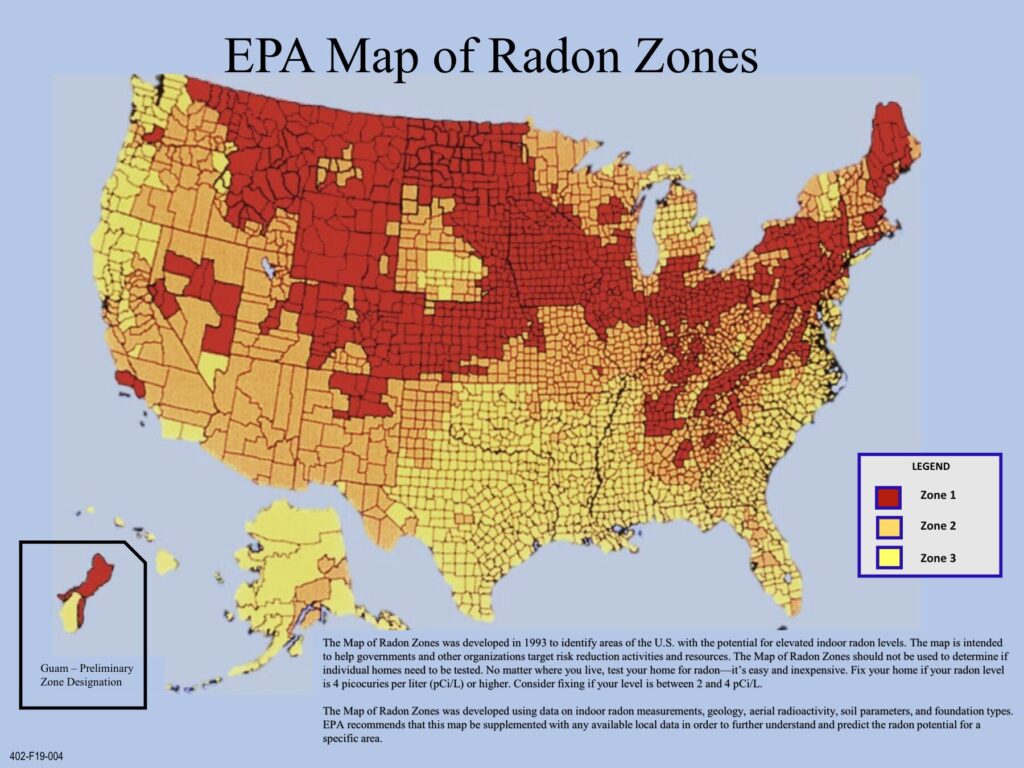FAQ Sites

Radon Info
ENVIROMENTAL PROTECTION AGENCY
WORLD HEALTH ORGANIZATION
https://www.who.int/news-room/fact-sheets/detail/radon-and-health
CENTER FOR DISEASE CONTROL
AMERICAN CANCER SOCIETY
https://www.cancer.org/cancer/cancer-causes/radiation-exposure/radon.html
Nebraska

Radon fan recommendations
EPA Map of Radon Zones
Are you buying a new home?
The EPA recommends that you know what the indoor radon level is in any home you consider buying. Ask the seller for their radon test results. If the home has a radon-reduction system, ask the seller for any information they have about the system. If the home has not yet been tested, you should have the house tested. Any home can have a radon problem. This means new and old homes, wellsealed and drafty homes, and homes with or without basements. In fact, you and your family are most likely to get your greatest radiation exposure at home.
Are you a realtor?
The EPA says nearly one out of every 15 homes in the United States is estimated to have an elevated radon level (4 pCi/L or more). Elevated levels of radon gas have been found in homes in your state. By advocating for radon testing, realtors help protect their clients from potential health hazards. In some regions, disclosure of radon levels is legally required during real estate transactions. Addressing radon issues before listing a property can prevent delays or complications during the sale process. If a buyer’s inspection reveals high radon levels, it may lead to renegotiations, demands for mitigation, or even deal cancellations. Addressing radon issues can help maintain or even increase a property’s value. Homes with unresolved radon problems might suffer a price reduction or prolonged time on the market.

